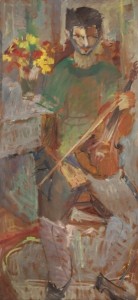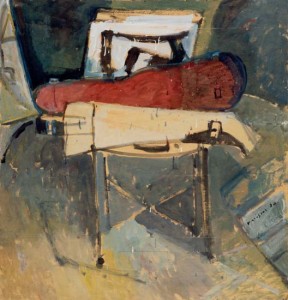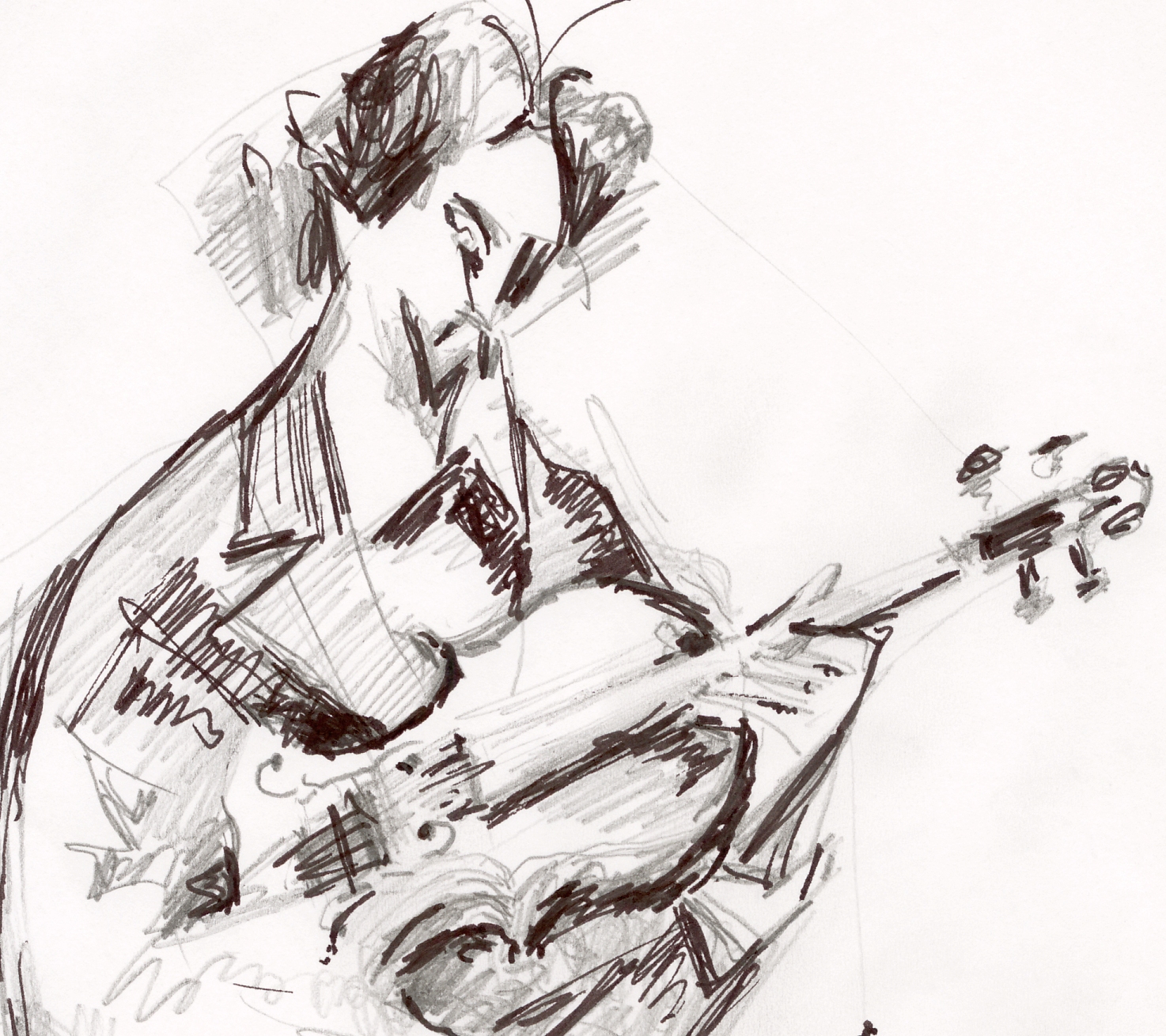 During my classical training years I used to hear teachers around me claiming that for every day I don’t practice I stay 2 days behind. These teachers even went so far to specify the exact number of hours I had to practice if I really wanted to stand a chance in music. In this article I want to dismiss this mentality as dangerous and stupid, and examine the reasons it prevents us from developing a healthy and positive attitude towards our instruments and music. The idea that your instrument can actually punish you belongs to the dark ages of education and is highly responsible for the fact that so many young people decide to quit playing once and for all. Unfortunately, I have to say that this mentality is still here and thriving, especially within classical music circles where competition is ruthless.
During my classical training years I used to hear teachers around me claiming that for every day I don’t practice I stay 2 days behind. These teachers even went so far to specify the exact number of hours I had to practice if I really wanted to stand a chance in music. In this article I want to dismiss this mentality as dangerous and stupid, and examine the reasons it prevents us from developing a healthy and positive attitude towards our instruments and music. The idea that your instrument can actually punish you belongs to the dark ages of education and is highly responsible for the fact that so many young people decide to quit playing once and for all. Unfortunately, I have to say that this mentality is still here and thriving, especially within classical music circles where competition is ruthless.
Our basic understanding about the nature of human learning largely comes from the competitive world of institutional education, which is basically more concerned about the logistics of professionalism, employment and career. In his book Music Society and Education, Christopher Small notes that ‘programmed learning systems are responsible for the development of the conception that knowledge lies outside and independently of the knower’. I believe he is right. If the opposite was true, institutional mass education and programmed learning systems would have far less reasons to exist. Based on this assumption, we draw a straight line -in the form of a standardized curriculum- on which we must balance and walk in order to arrive at that knowledge.
David Hawkins, however, in his great work How to plan for spontaneity (in Silberman, Charles (ed) (1973) The open classroom reader, New York: Vintage books, p. 501) questions rationalistic approaches to teaching insisting that ‘learning does not have any close or intimate relation with logical organization’. With regard to the interrelation of ideas he goes on to suggest that ‘there isn’t any linear order among them. They are connected in a very complex sort of network and you can make your way through them along thousands of paths, depending on your momentary readiness, your understanding, your fund of analogies and your interests’. This is the best explanation for the fact that so many musicians around the world have developed musical skills without having followed a structured training programme of any kind. It is exactly what many classical musicians are unable to comprehend when they listen to a great musician with no formal training whatsoever.
I believe that the development of musical skills takes place through jumps, turns, spins and drawbacks. It is asymmetrical and random, and takes place within a 3-dimensional network of learning pathways in which there is space for our individual needs and learning modes. These learning pathways are in turn multiplied by human interaction resulting in an even more complex network of learning pathways, which no organized learning system can account for. Sharing, feedback and encouragement among people with common interests provide this ideal 3-dimensional learning context. I think the bluegrass community is an example of such context, effortlessly producing vast numbers of amazing musicians.
On the other hand, the linear and deterministic view of learning also encourages us to develop a linear conception of time. We therefore shape our practicing mentality on the assumption that time is running against us. According to the teachers I mentioned in my introduction, every day that passes by in our lives make us either better or worse violinists. This is madness! It is a mental framework that prevents us from having a healthy and enjoyable attitude towards music. Of course I am not so naïve to question the fact that the more time and effort we put into something the better we become. As true as this might be, it is also a crude generalization that 1) tends to ignore all other factors that play a crucial role during the complex process of developing instrumental skills like social context, listening, reading, debating and 2) takes our focus away from the qualitative aspect of practicing, something which very often leads a lot of people to take one step forward and two steps backwards.
 My experience and many of my music friends’ experience suggests that refraining from playing can be extremely beneficial. Playing an instrument -the violin in particular- is a mentally and physically demanding activity. It follows the laws that govern any physical activity. And resting is an indisputable law. The idea that the violin punishes you when you leave it alone for a while is not only far from the truth but also dangerous. Guitarist John Petrucci in one of his guitar books testifies what sounds as a personal experience: You may have difficulty playing a 16th-note passage at 144 beats per minute. And no matter how many weeks you practice, you just can’t seem to break that 144 bpm barrier. Then one day, you pick up the guitar and, for no good reason, play the same passage not just at 144, but at 160 beats per minute!
My experience and many of my music friends’ experience suggests that refraining from playing can be extremely beneficial. Playing an instrument -the violin in particular- is a mentally and physically demanding activity. It follows the laws that govern any physical activity. And resting is an indisputable law. The idea that the violin punishes you when you leave it alone for a while is not only far from the truth but also dangerous. Guitarist John Petrucci in one of his guitar books testifies what sounds as a personal experience: You may have difficulty playing a 16th-note passage at 144 beats per minute. And no matter how many weeks you practice, you just can’t seem to break that 144 bpm barrier. Then one day, you pick up the guitar and, for no good reason, play the same passage not just at 144, but at 160 beats per minute!
This type of discontinuity is natural, innocent and fun. One of the times I experienced it was during the translation of a book. At some point during my translation I realized that I had zoomed so much in the text after working long hours that I had completely abandoned my capacity as a reader. I started focusing on words instead of sentences, missing the overall meaning of the text. Being completely stuck, I decided to stop working on the translation for a week and come back to it later. When I got back to work I was amazed at the great ease with which I handled my translation problems, the same problems that seemed unsolvable a week earlier.
Live performance is another example. We all know that a number of factors can affect it. All of us who play before an audience know that there are good days and bad days, and so many others in between that describe the chaotic breadth of moods we can be in when we are performing live. Although our performance certainly depends on our preparation, it has no direct dependence on it. My point is that if our musical skills are not always confirmable, then we should not plan to develop them like they were.
One of the things I love about music is the fact that so many musicians remind us of that learning complexity by being great in so many unexpected ways. I think we should make sure that we are enjoying what we are doing first, because enjoyment accelerates knowledge acquisition more than anything else. Progress tends to come faster when we stop chasing it and leave it alone to do its job without evaluating it all the time.

Thank you Stergios for all this information.Needless to say that from a pedagogical perspective the above article is invaluable.